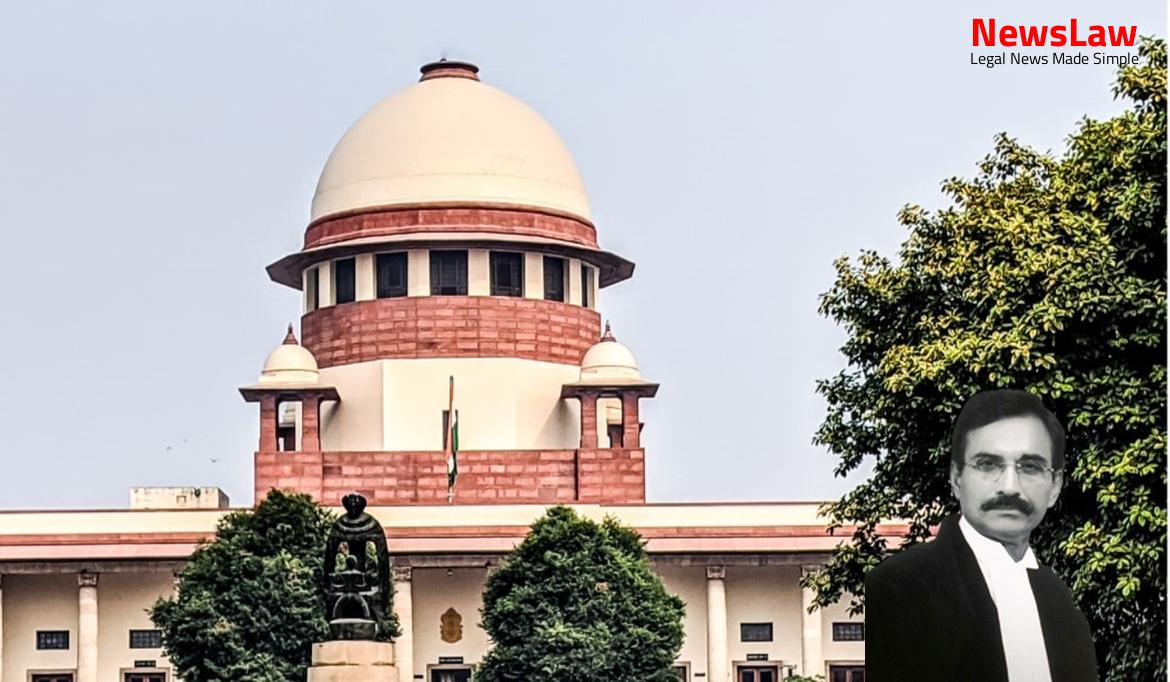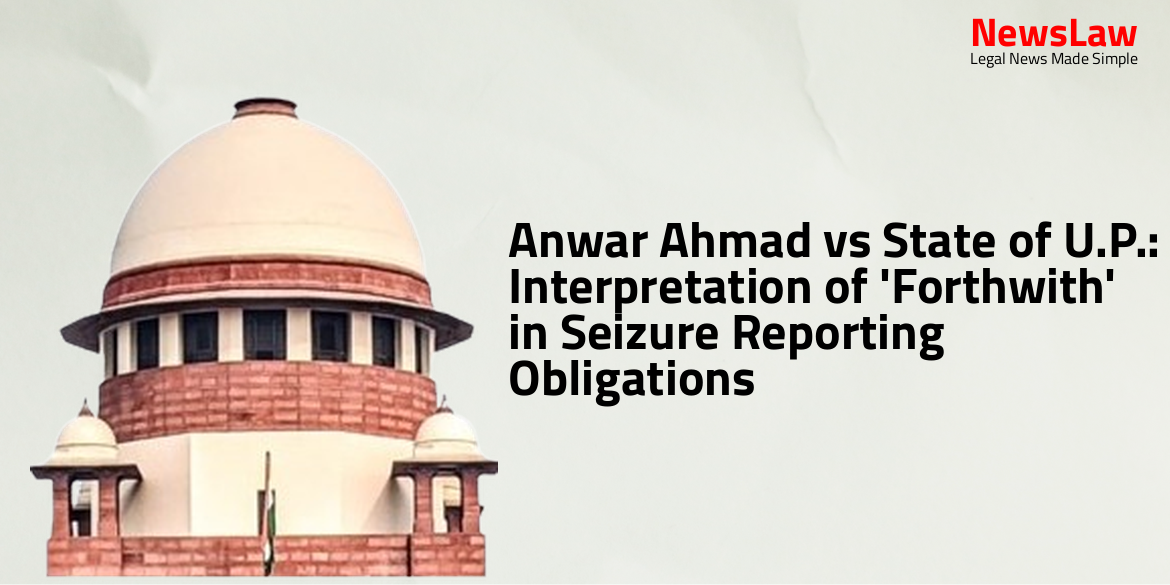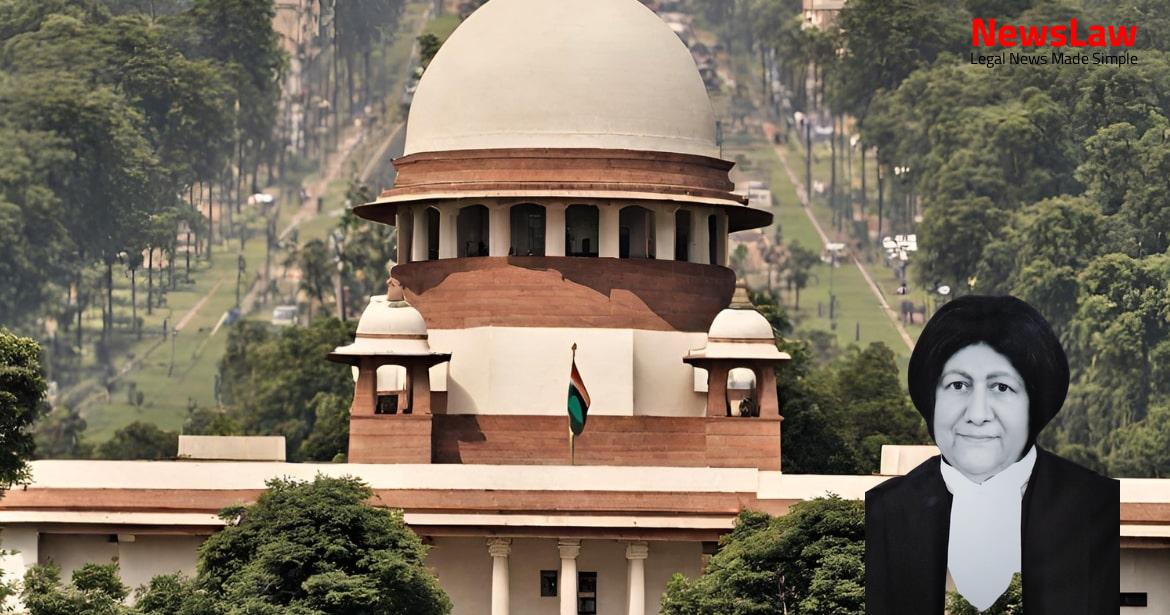In a landmark judgment by the Supreme Court of India, the accused has been acquitted in a murder case. The case, which revolved around the theory of last seen together, lacked substantial evidence to convict the accused. Key witnesses, Sonawati (PW-1) and Hirmaniabai (PW-2), turning hostile during the trial further undermined the prosecution’s case. The inability to establish the crucial circumstance of the accused and the deceased being last seen together led to the acquittal. This judgment highlights the importance of strong evidence in criminal cases.
Arguments
- The prosecution examined two witnesses, Sonawati (PW-1) and Hirmaniabai (PW-2).
- The prosecution argues that the appellant did not meet the burden of proof under Section 106 of the Indian Evidence Act, 1872.
- The prosecution’s case is centered around the theory of last seen together.
- Appellant’s counsel argues lack of evidence in establishing the theory of last seen together and motive.
- State’s counsel argues that the presumption under Section 106 of the Evidence Act applies.
Also Read: Case Summary: Legal Implications for Directors in Company Affairs
Analysis
- The appellant’s presence is established based on his own admission of returning home around 4:00-5:00 p.m.
- The prosecution failed to prove that the appellant was last seen together with the deceased wife.
- Even the appellant’s complete answer to question no.27 does not support the prosecution’s case.
- Both PW-1 and PW-2 were declared hostile witnesses during the trial.
- The Public Prosecutor did not confront PW-1 with relevant parts of her statement under Section 161 of the Cr.PC.
- PW-2 did not testify to the appellant’s presence in the house close to the time the deceased’s body was found.
- The burden to prove appellant’s presence under Section 106 of the Evidence Act was not met by the prosecution.
- Evidence shows the deceased had died before the appellant returned home at 7:00 p.m., weakening the last seen theory.
- Section 106 of the Evidence Act cannot be applied to shift the burden to the appellant.
- Testimonies indicate the appellant arrived home after his wife’s death, further undermining the prosecution’s case.
- The prosecution failed to prove that the appellant and the deceased were last seen together.
- As the prosecution could not establish this crucial circumstance, they failed to prove the charge of murder under Section 302 of the IPC.
- The impugned judgments and orders are set aside.
- The appellant is acquitted of the offence alleged against him.
Also Read: Land Allotment Transparency: Setting Precedent for Equitable Distribution
Decision
- The appellant shall be released immediately unless needed in another case.
- The appeal has been successfully allowed.
Also Read: Exclusion of VAT from Taxable Turnover Upheld by Supreme Court
Case Title: MANHARAN RAJWADE Vs. THE STATE OF CHHATTISGARH (2024 INSC 560)
Case Number: Crl.A. No.-000818-000818 – 2019



